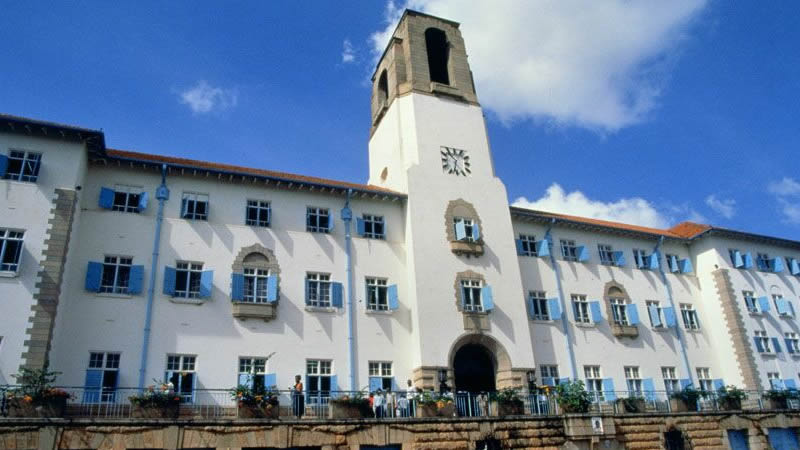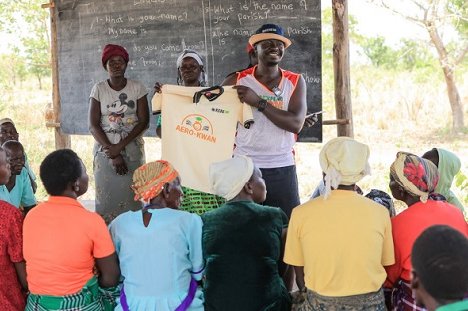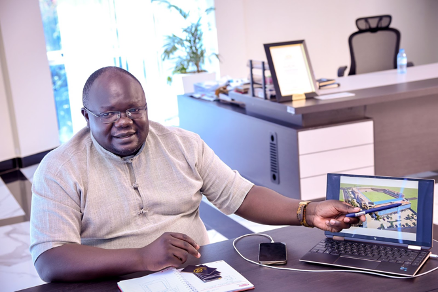By Immaculate Bazira
What was your journey as a student like at Makerere University?
Makerere didn’t have many business courses in 1987 when I finished A’ Level yet I was interested in business. Nine years later, I joined the BBA course in Makerere. I was in the pioneer class. By then, I had been running a business for three years. One of the things I needed to learn was how to handle a small business. So when I studied BBA, I learnt networking, and how to do exhibitions to promote a business which worked for me.
I learnt how to do market surveys, research in terms of what your clients want, how the needs are changing and doing intentional service level surveys where I learnt how to engage my clients and keep in touch with them.
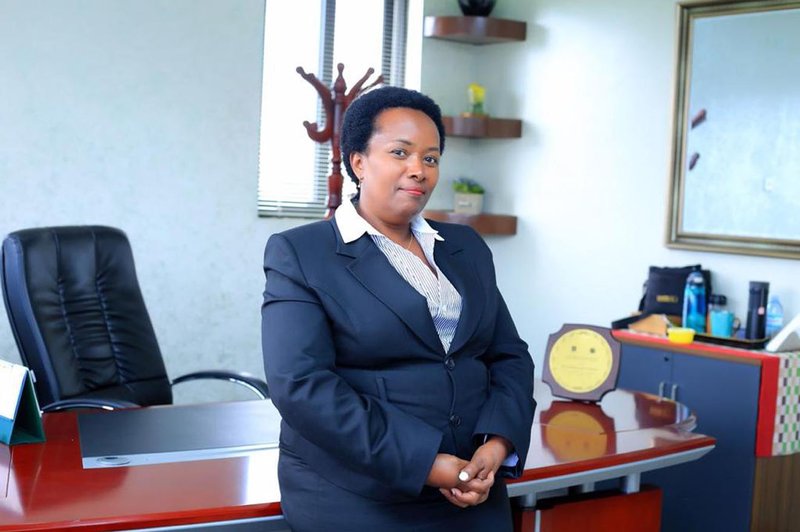
Ms. Jennifer Mwijukye at the Unifreight Cargo Handling office in Kampala, Uganda.
How did your experience at Makerere University shape you?
I can tell you that having joined business school and acquired knowledge made me unique and helped me grow. A combination of an entrepreneurial mind and the training builds a professional practitioner in business. For me that is the value we can count as far as Makerere’s training.
Because of my BBA course, I engaged Shoprite on how the East African Community was going to disadvantage them in terms of taxing the goods from South Africa over and above, than if they manufactured or picked goods from Kenya. Therefore, they made some strategic decisions and started getting some from Kenya.
I became an expert in financial management and was very excited at the course content. What I learned from [Makerere University Business School] MUBS has made my business possible. Makerere University’s courses impel the learner to put the knowledge into practice. I can testify to that. I was a mature entrant and knew what I wanted and got it.
Now, I do logistics business under Unifreight Cargo Handling which I founded in 1996 because I had left employment at Urgent Cargo Handling, a clearing firm. Unifreight has grown to birth 3 strategic business units: Unifreight Cargo Handling (the mother company), Unifreight Trucking Services and Strategic Smart Partnerships (SSP) which is a vehicle I use to inspire, coach, mentor and train businesses.
What inspired you to start your own business?
I had the support of my husband who always encouraged me. For instance, he ushered me into marketing when I was at crossroads. I wanted to do finance but he highlighted my strengths as the right ones for the field. He said I know how to speak to and engage with people.
I was able to see opportunities without limitations. When I started my business in 1996, there weren’t many people — let alone women — that saw business as the destination. They thought of looking for employment in good companies like British American Tobacco (BAT) where I was first employed as a fresh graduate. The entrepreneur in me didn’t let me settle at just being an employee.
My aspiration to advance my studies was a push factor. If I had remained at Urgent Cargo Handling I would have relaxed. When for example I finished high school and could not join Makerere University I thought I was a failure in life. Thank God we got MUBS at the right time, I always felt that something was missing even when I had attended Nakawa College of Business Studies (NCBS). I needed to know how to do it better.
I wanted to do business as a long term strategy. Clearing and forwarding then was full of get-rich-quick in dubious ways.. My instinct was to do it right, be the example. That business can be done right, with right values for the long term. You have to run a business professionally for the long term. The motive cannot be just money. It is making an impact.
At Unifreight Cargo Handling, professionalism, integrity, responsibility and accountability are some of our values. As we grew, we adopted excellence as it inspired us in the right direction.
How have you impacted society and your sector as a business leader?
I was a leader in Uganda Women Entrepreneurs (UWEA), Uganda Freight Forwarders Association (UFFA), Uganda Road Fund Board (URFB), and the Presidential Investors’ Round Table (PIRT). Whenever people thought of transport and logistics, they thought of me. That made me outstanding and enabled me to network.
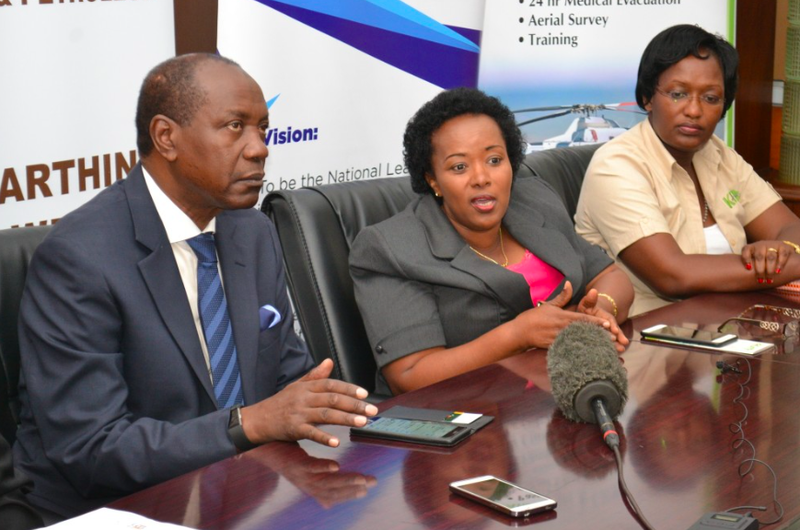
Jennifer Mwijukye (Centre) addressing the press about a Regional Logistics Expo with other business leaders.
When we network, we should contribute to that network. You should make eye-catching contributions. I wouldn’t join those groups just to associate but because of the impact I wanted to make.
I want the best for everyone. Whoever is in my team must receive the best from me. I possess the drive to make positive change. I will always ask the hard questions. Where are we going in terms of quantifiable results? I have a burden for Uganda in terms of doing things right. Any opportunity I am given to serve I think, “Can’t we do things right?” What is it that we lack that others have? We should all have a burden for Uganda.
What has changed in the field as a result of your initiative?
One thing that changed in the field as a result of my initiative is training in the sector of clearing and forwarding. I fought for training because I think it is crucial and I saw a need in our sector. Most people that joined clearing and forwarding made it a last resort to steal government taxes. The players were dirty and I was burdened. When I met my Old Girl, Nakayi Gorreti in 1998, she was shocked that I worked in clearing and forwarding. She cried foul and narrated her past woes with clearing agents’ theft. I promised her that I was the change and that I intended to change its reputation.
The then Clearing and Forwarding Association leadership was full of wrangles and inconsistencies. Fortunately, I met a like minded person- Charles Kareeba, an ousted member of the old association with whom we founded Uganda Freight Forwarders Association with 8 more members to steer change.
In 2005 we started a training discussion during the peak of the East African integration where many donors were interested in investing. Our biggest issue was to train and empower members with knowledge and skills. They needed confidence to say “Even if I don’t cheat, I can do this business for the long term.”
I won the favor of the USAID donor to start designing a curriculum. That time we were also forming the Freight Forwarders Federation (FFF) in all 5 East African countries. I am happy to let you know that that curriculum is still running to date. It has brought the youth to clearing and forwarding.
My intention was to grow the industry with professional practice and now it is recognised and is reputable with a seat on URFB by an Act of Parliament. We have a position on the board because we have a professional body supporting us. We were at the PIRT because of our impact. The people now know transport is an important sector because of our voice and advocacy. Now the government allocates sums of money to roads and transport.
What is your advice to young people interested in venturing in the industry?
Having walked the journey of growing a small business to medium size, I encourage the youth to form and join strategic networks and pay heed to emerging needs.
I advise prospective entrepreneurs to be intrapreneurs. Intrapreneurs are people that work for skills not just remuneration. It is crucial to cultivate this mindset because it grooms the right character. It takes character to work for skills and not just money. You need to learn to work for skills first, the beauty is you are learning while you get paid.
Therefore, work diligently and the return on investment will sprout.
When you work to learn, you take on extra responsibility, you befriend colleagues because you want to learn and before you know it, you are familiar with the operations of all departments in the organisation. You are positioning yourself for a promotion because of how indispensable you are in a short time.
What motivated you to join the Makerere University Endowment Fund Board of Trustees?
I joined MakEF to see that students and parents have a say and a seat at the Makerere University Council. This is important because the number of students on private sponsorship is now more than half of the institution population.
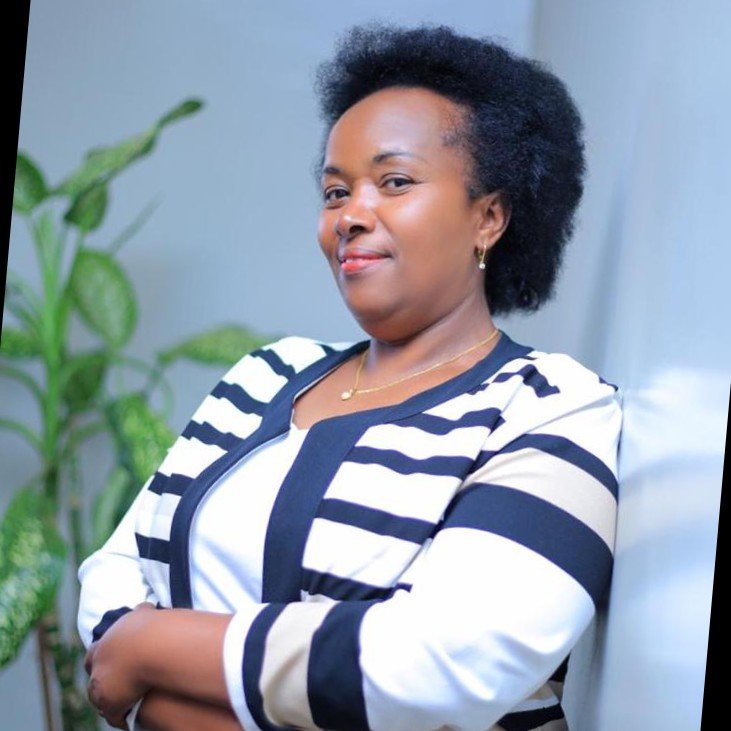
Ms. Jennifer Mwijukye
Since I sit on the MakEF Board of Directors, I have access to the University Council. I am glad MakEF designed, produced and distributed the 74th graduation gowns in time, gave academic transcripts to students in time and the stakeholders gave appreciative feedback which is a clear indication that things can change at the hill.
What would encourage the alumni of Makerere University as a member of the Board of MakEF?
Alumni are responsible citizens and I think it’s time to think about the contribution we make to the institutions that made us. It comes from compassion by looking at the future of the university. We can no longer expect donations because there is a fatigue from donors.
Therefore, I implore all alumni, friends and well-wishers of Makerere University to contribute to this cause. Let us say that all the people that have been affiliated to the institution were to contribute Shs2,000 each, it would make a big impact in improving infrastructure, and support scholarships and research.
Related News
![]() Please join hands with the Makerere University Endowment Fund as it works towards attracting & retaining the best faculty, providing scholarships, and investing in cutting-edge research and technology.
Please join hands with the Makerere University Endowment Fund as it works towards attracting & retaining the best faculty, providing scholarships, and investing in cutting-edge research and technology.
